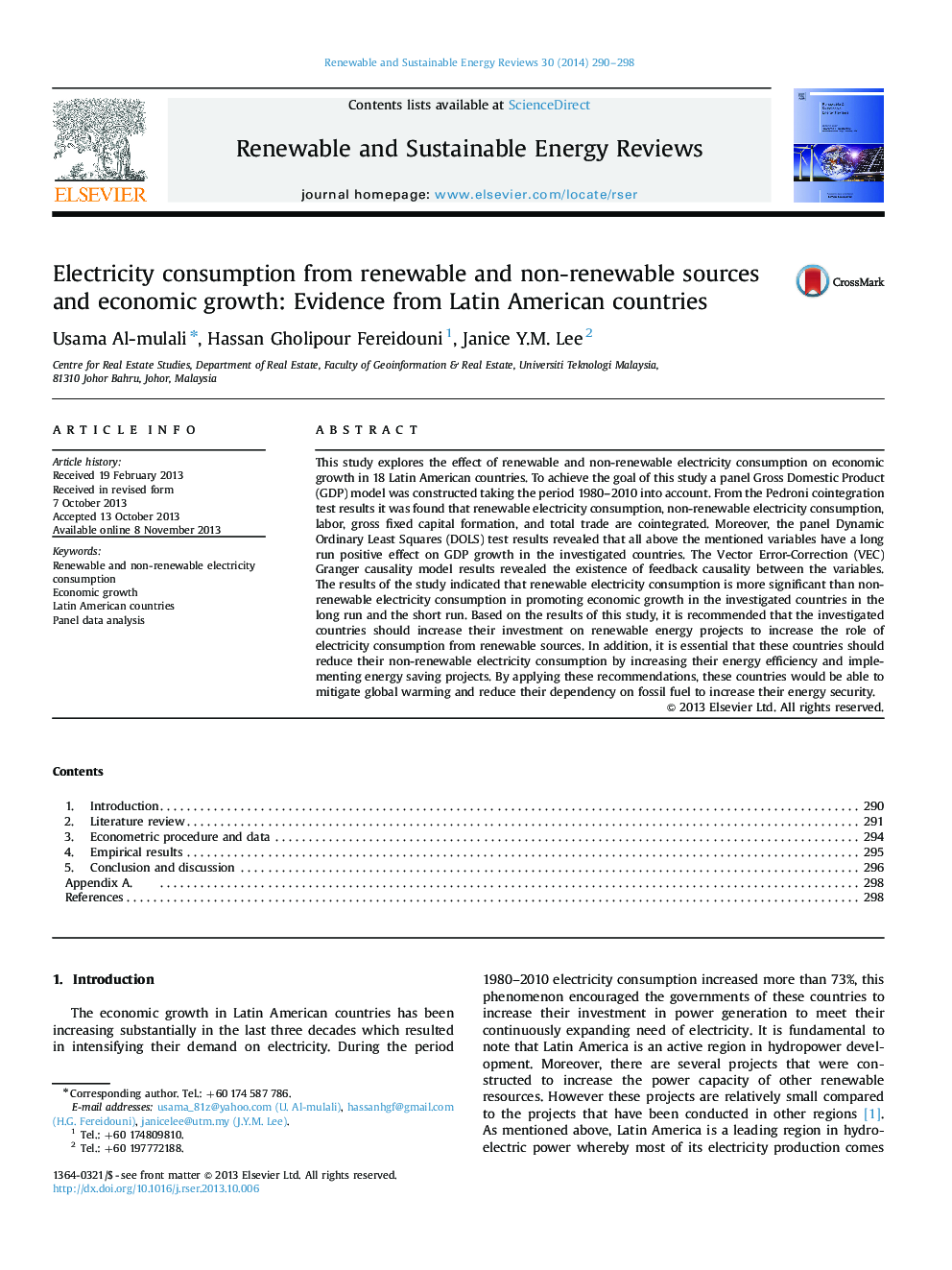| Article ID | Journal | Published Year | Pages | File Type |
|---|---|---|---|---|
| 8120324 | Renewable and Sustainable Energy Reviews | 2014 | 9 Pages |
Abstract
This study explores the effect of renewable and non-renewable electricity consumption on economic growth in 18 Latin American countries. To achieve the goal of this study a panel Gross Domestic Product (GDP) model was constructed taking the period 1980-2010 into account. From the Pedroni cointegration test results it was found that renewable electricity consumption, non-renewable electricity consumption, labor, gross fixed capital formation, and total trade are cointegrated. Moreover, the panel Dynamic Ordinary Least Squares (DOLS) test results revealed that all above the mentioned variables have a long run positive effect on GDP growth in the investigated countries. The Vector Error-Correction (VEC) Granger causality model results revealed the existence of feedback causality between the variables. The results of the study indicated that renewable electricity consumption is more significant than non-renewable electricity consumption in promoting economic growth in the investigated countries in the long run and the short run. Based on the results of this study, it is recommended that the investigated countries should increase their investment on renewable energy projects to increase the role of electricity consumption from renewable sources. In addition, it is essential that these countries should reduce their non-renewable electricity consumption by increasing their energy efficiency and implementing energy saving projects. By applying these recommendations, these countries would be able to mitigate global warming and reduce their dependency on fossil fuel to increase their energy security.
Related Topics
Physical Sciences and Engineering
Energy
Renewable Energy, Sustainability and the Environment
Authors
Usama Al-mulali, Hassan Gholipour Fereidouni, Janice Y.M. Lee,
